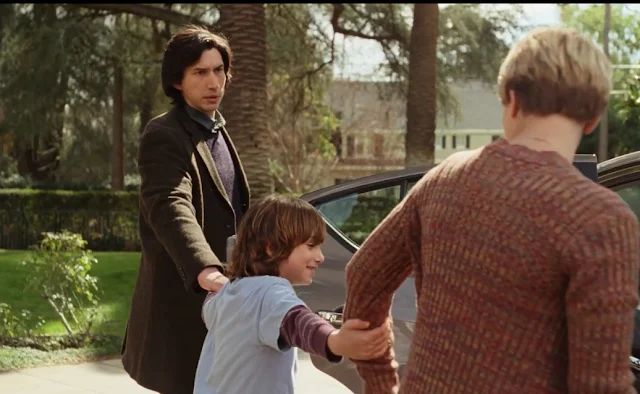 |
| Kate Dickie, Natalie Press, and Martin Compston in Red Road |
Andrea Arnold's Red Road walks the fine line (not always steadily) between psychological drama and melodrama, between hard-nosed realism and sentiment. At its best, it takes us somewhere we haven't been (and probably didn't want to go), the Glasgow housing project of the film's title, and immerses us in some desperate lives. It uses the hand-held camera technique associated with the Dogme 95 moment splendidly, so that we stay off-balance physically as well as emotionally throughout the film. At its worst, a rather perfunctory sort-of-happy ending, it feels like an unconvincing attempt to wipe away the film's grit. It's a story about Jackie (Kate Dickie), a young woman who works as a professional voyeur, spending her days watching a bank of video monitors that record the goings-on in a particular slice of Glasgow. When she spots malfeasance, she can alert the police. But mostly she's watching people going about mundane tasks in decidedly unlovely places, so small wonder that her attention wanders and she fixates on individual people, such as a man walking his aging English bulldog. And eventually she lights on someone she knows: His name is Clyde (Tony Curran), and she has reason to become obsessed with him, because of something that happened in the past. Arnold lets us piece together the story as the film goes on, and she does so skillfully. It was Arnold's first feature -- she had previously won an Oscar for best live-action short with Wasp (2003) -- and it earned her much praise, including the Jury Prize at Cannes. Whatever its faults, it repays your attention, not to say your endurance of some of its uglier moments.









